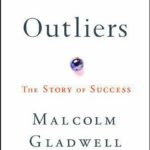The Transaction
- Writing is usually hard, lonely, and words seldom flow.
- Professional writers rewrite their sentences over and over and over and then rewrite what they have written.
- Writers must establish a writing schedule and stick to it.
- If writing is your job, you learn to do it like any other job.
- Good writing has an aliveness that keeps the reader reading from one paragraph to the next, and it’s not a question of gimmicks to “personalize” the author. It’s a question of using the English language in a way that will achieve the greatest clarity and strength.
Simplicity
- Clutter is the disease of American writing.
- The secret of good writing is to strip every sentence to its cleanest components.
- Simplify, simplify, simplify.
- Clear thinking becomes clear writing
- Writing is hard work. A clear sentence is no accident. Very few sentences come out right the first time, or even, the third time.
- With each rewrite I try to make what I have written tighter, stronger, and more precise, eliminating every element that’s not doing useful work.
Clutter
- Clutter is the laborious phrase that has pushed out the short word that means the same thing.
- If you might add, add it. If it should be pointed out, point it out. If it is interesting to note, make it interesting are we not all stupefied by what follows when someone says, “this will interest you”? Don’t inflate what needs no inflating.
- The reader will notice if you are putting on airs. Readers want the person who is taking to them to sound genuine. Therefore a fundamental rule is: be yourself.
- I urge people to write in the first person; to use “I” and “me” and “we” and “us.”
- Sell yourself, and your subject will exert its own appeal. Writing is an act of ego and you might as well admit it. Use its energy to keep yourself going.
The Audience
- You are writing for yourself, not an audience.
- There is no excuse for losing readers due to sloppy workmanship.
- First, work hard to master the tools. Simplify, prune, and strive for order. Think of this as a mechanical act, soon your sentences will become cleaner. Think of the other as a creative act; the expressing of who you are. Relax and say what you want to say.
- Never say anything in writing that you wouldn’t comfortably say in conversation. If you never say “indeed” or “moreover” than don’t write it.
Words
- To become original is to care about words deeply. The race is not to be swift, but original.
- Get in the habit of using dictionaries and thesaurus. A thesaurus is to the writer what rhyming dictionary is to a songwriter.
- See if you can gain variety by reversing the order of a sentence, or by substituting a word that has freshness or oddity, or by altering the length of your sentences so that they don’t sound as if they had some out of a machine. An occasional short sentence can carry a tremendous punch.
Usage
- Goog usage consists of good words if they already exist to express myself clearly and simply to someone else.
Unity
- What is annoying is that the writer never determined what kind of article he wanted to write or how he wanted to approach us. Instead of controlling his material, his material is controlling him.
- Ask yourself these questions:
- In what capacity am I going to address the reader?
- What pronoun and tense am I going to use?
- What attitude am I going to take toward the material?
- How much do I want to cover?
- What one point do I want to make?
- Think small.
- Every piece of nonfiction should leave the reader with one thought that he the reader did not have before.
The Lead and Ending
- The most important sentence in any article is the first one.
- The lead must capture the reader immediately and force him to keep reading.
- The lead must do some real work.
Bits and Pieces
- Use active verbs unless there is no comfortable way around using passive verbs.
- “Joe saw him.” is strong. “He was seen by Joe.” is weak.
- Most adverbs are unnecessary. You will clutter your sentences and annoy the reader.
- Most adjectives are also necessary.
- Prune out qualifiers that qualify how you feel and how you think and what you saw.
- The semicolon brings the reader, if not to a halt, at least to a pause.
- The dash is used in the following two ways – to amplify or justify in the second part a thought you stated in the first part and set apart a parenthetical thought within a longer sentence.
- Learn to alert the reader as soon as possible to any change in mood from the previous sentence. “But, yet, however, nevertheless, still, instead, thus, therefore, meanwhile, now, later, today, subsequently.”
- Your style will be warmer and truer to your personality if you use contractions like “I’ll,” “won’t,” and “can’t.”
- Don’t overstate.
- Writing is not a competition. Forget the competition and go at your own pace. Your only contest is with yourself.
- Surprisingly often a simple problem in a given sentence can be solved by simply getting rid of it.
- Keep your paragraphs short. Writing is visual – it catches the eye before it has a chance to catch the brain. Short paragraphs put air around what you write and make it look inviting, whereas a long chunk of type can discourage a reader from even starting to read.
- You won’t write well until you understand that writing is an evolving process, not a finished product.
- Most rewriting consists of reshaping and tightening and refining the raw material you wrote on your first try. Much of it consists of making sure you’ve given a narrative he can follow with no trouble from beginning to end.
- People will write better and with more enjoyment if they write what they care about. Write about what you love or what you’re passionate about.
- Try not to use “surprisingly,” “predictably,” and “of course” which put value on a fact before the reader encounters the fact.
Writing About People
- Get people talking. Learn to ask questions that will elicit answers about what is most interesting or vivid in their lives.
- Make a list of likely questions – it will save you the embarrassment of going dry mid-interview.
- When you use a quotation, start the sentence with it. Don’t lead up to it with a vapid phrase saying what the man said.
Writing About Places
- Don’t tell all. “All” is not what we want to hear. Tell a story.
- It’s natural for all of us when we have gone to a certain place to feel that we are the first people whoever went there.
- Avoid the countless travel clichés.
- Bring out the details that are significant about a place.
- Whatever place you write about, isolate the qualities that make the place distinctive.
Writing About Yourself (The Memoir)
- Don’t prattle just for therapy.
- To write a good memoir you must be the editor of your own life. You must have a narrative shape and organizing idea.
Science and Technology
- A tenet of journalism is that “the reader knows nothing.” You can’t assume that your reader know what everybody knows.
- Describing how a process works is valuable for two reasons:
- It forces you to make sure you know how it works
- Then if forces you to take the reader through the same sequence of ideas and deductions that made it clear to you
Business Writing
- Readers identify with people, not abstractions like profitability.
- Four articles of faith: clarity, simplicity, brevity, and humanity.
- A simple style is the result of hard work and clear thinking.
- Be yourself when you write. You will stand out as a real person among robots.
Sports
- Never be afraid to repeat the player’s name and keep the details simple.
- One task of the sportswriter is to let us know what it feels like to actually perform a sport.
- If you want to be a critic, steep yourself in the literature of the medium you hope to make your specialty. If you want to be a theater critic, see every possible play.
Humor
- Blondie was funny because it was based on four things that everybody does: eating, sleeping, making money, and raising a family.
- Most humor is based on fundamental truths
The Sound of Your Voice
- Don’t alter your voice to fit your subject. Develop one voice that readers will recognize when they hear it on the page, a voice that enjoyable not only in its musical line but its avoidance of sounds that would cheapen its tone breeziness and condescension and clichés.
- There is a kind of writing that sounds so relaxed that you think you hear the author talking to you.
- Taste chooses words that have surprise, strength, and precision.
- Taste is a mixture of qualities that are beyond analyzing.
- A writer with an ear for language will reach for fresh imagery and avoid phrases that are trite. The hack will reach for those very clichés thinking it will enrich his thoughts with currency that is, in his words, tried and true.
Enjoyment, Fear, and Confidence
- If you master the tools of the trade – the fundamentals of interviewing and orderly construction – and if you bring to the assignment your general intelligence and your humanity, you can write about any subject.
The Tyranny of the Final Product
- If the process is sound, the product will take care of itself, and sales are likely to follow.
- It all begins with intention. Figure out what you want to do and how you want to do it, and work your way with humanity and integrity to the completed article. Then you’ll have something to sell.
A Writer’s Decision
- The hardest decision about any article is about how to begin it. The writer must grab the reader with a provocative idea and continue with each paragraph to hold him or her in a tight grip, gradually adding information. The point of the information is to get the reader so interested that they stick around for the whole trip.
- Don’t give magazine readers more information than they require. If you want to tell more, write a book
Write As Well As You Can
- Where then is the edge? Ninety percent of the answer lies in mastering the tools that lie in this book.
- But the answer is also the same that lies in every competitive venture. If you would like to write better than everyone else, than you have to want to write better than everyone else. You must take an obsessive pride in the smallest details of your craft.
- The purposes that writers must serve must be their own. What you write is yours and nobody else’s. Writing well means believing in yourself, taking risks, daring to be different, pushing yourself to excel. You will write only as well as you make yourself write.

 Outliers – Malcolm Gladwell
Outliers – Malcolm Gladwell